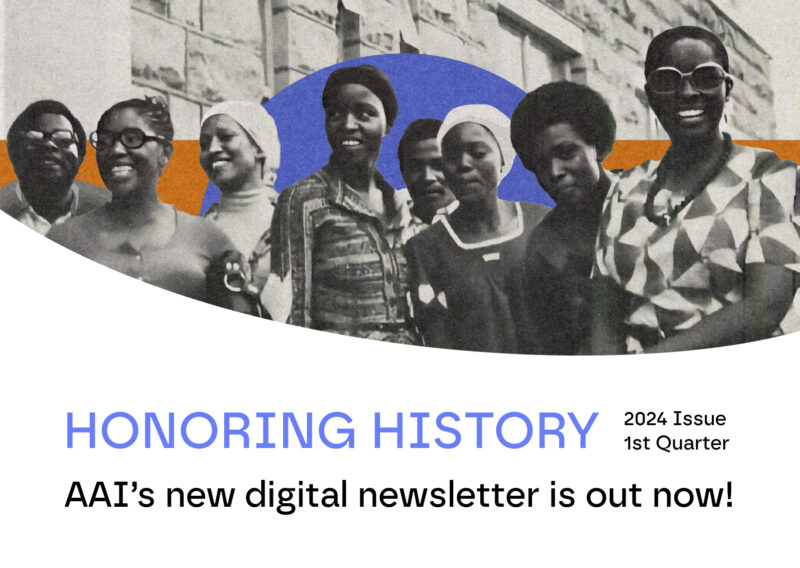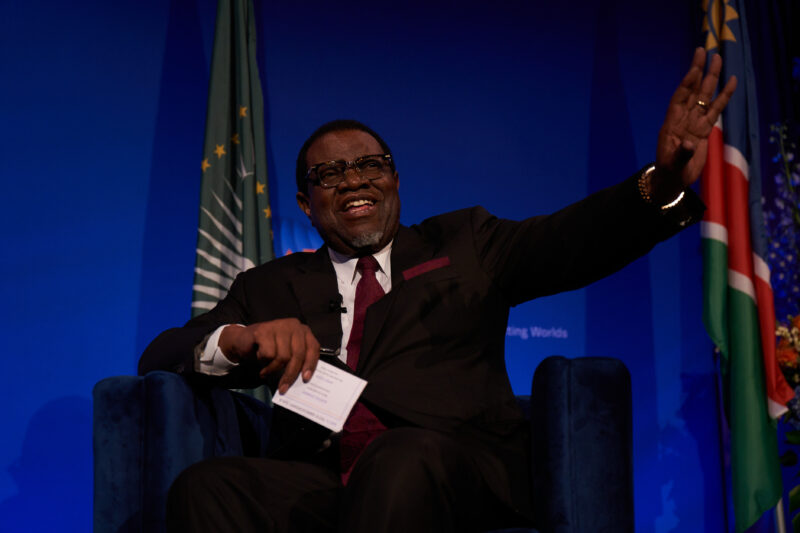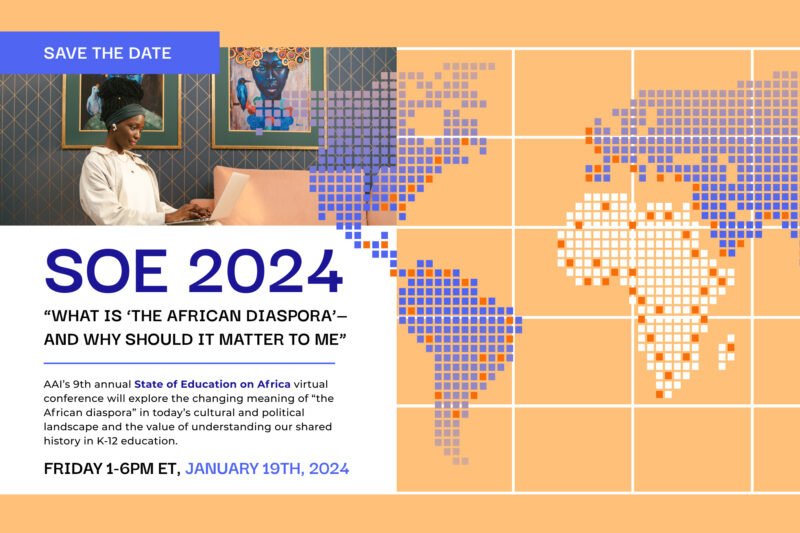Washington Wire: Winter 2015
News from AAI’s Washington, DC Office
By Austin Cooper
 The 114th Congress convened on Capitol Hill on January 6, 2015. With a change in congressional committee leadership in the Senate, only time will tell which priorities related to Africa will emerge in this legislative session.
The 114th Congress convened on Capitol Hill on January 6, 2015. With a change in congressional committee leadership in the Senate, only time will tell which priorities related to Africa will emerge in this legislative session.
Despite the persistence of negative news stories – especially in the Western media – there is good news coming out of Africa. For example, according to a recent World Economic Forum study: “Over the past decade and a half, Africa has demonstrated a remarkable economic turnaround, growing two to three percentage points faster than global GDP. Regional growth is projected to remain stable above 5% in 2015, buoyed by rising foreign direct investment flows, particularly into the natural resources sector; increased public investment in infrastructure; and higher agricultural production.”
However, even the positive economic news, some challenges still remain. West African countries impacted by the devastating Ebola crisis will face an uphill recovery in 2015. The cost of the epidemic for Sub-Saharan Africa’s economy, according to the World Bank, is likely to be closer to $3-4 billion; not the worst-case scenario of $32 billion predicted last fall. The risk was substantially reduced due to the success of containment in some countries.
Elections will sweep across the continent in 2015.Nigeria, the continent’s largest economy, will hold a presidential election in May. Indeed, there will be similar elections in 15 African countries this year. Needless to say, the elections will no doubt bring about both opportunities and challenges as many Africans are ready for a smooth transition of power.
Just two years are left in the presidency of Barack H. Obama. His election five years ago sparked audacious hopes in people around the globe — but nowhere did it stoke such outsized expectations as in Africa. Many Africans thought the election of the first president of the United States from the African Diaspora would herald a new era of U.S. relations with the continent. It was expected that Africa would at long last get the respect and attention of the world in general, and United States in particular.
After a slow start, the Obama Administration has taken significant steps to leave its imprint on the continent in the last two years. “Power Africa,” a public-private partnership designed to make access to electricity available across Africa, has the potential to be truly transformative over time. Similarly, the “Feed the Future” and “Young African Leaders Initiative” (YALI) programs are not only strengthening capacity in Africa, but also leaving a lasting imprint on a new generation of African leaders.
Due to the approaching deadline of September 2015, the extension of the African Growth and Opportunity Act (AGOA) is critical to the commercial objectives of both Africa and the United States. The Administration should work with the new Congress to extend and increase duty-free access to the U.S. market. If AGOA not extended this year, the credibility of the President on the continent will suffer a tremendous blow. However, given President Obama’s past support of AGOA, we know that the administration will make a strong effort to ensure the passage of the U.S.-Africa trade law.
Stay in touch! In Washington, I can be reached at (202) 550-1149 or email, austinrcooper@gmail.com.
Austin R. Cooper, Jr. is AAI’s Government Affairs Representative



